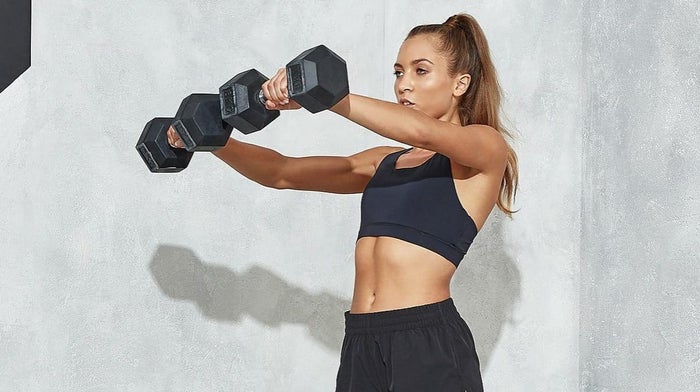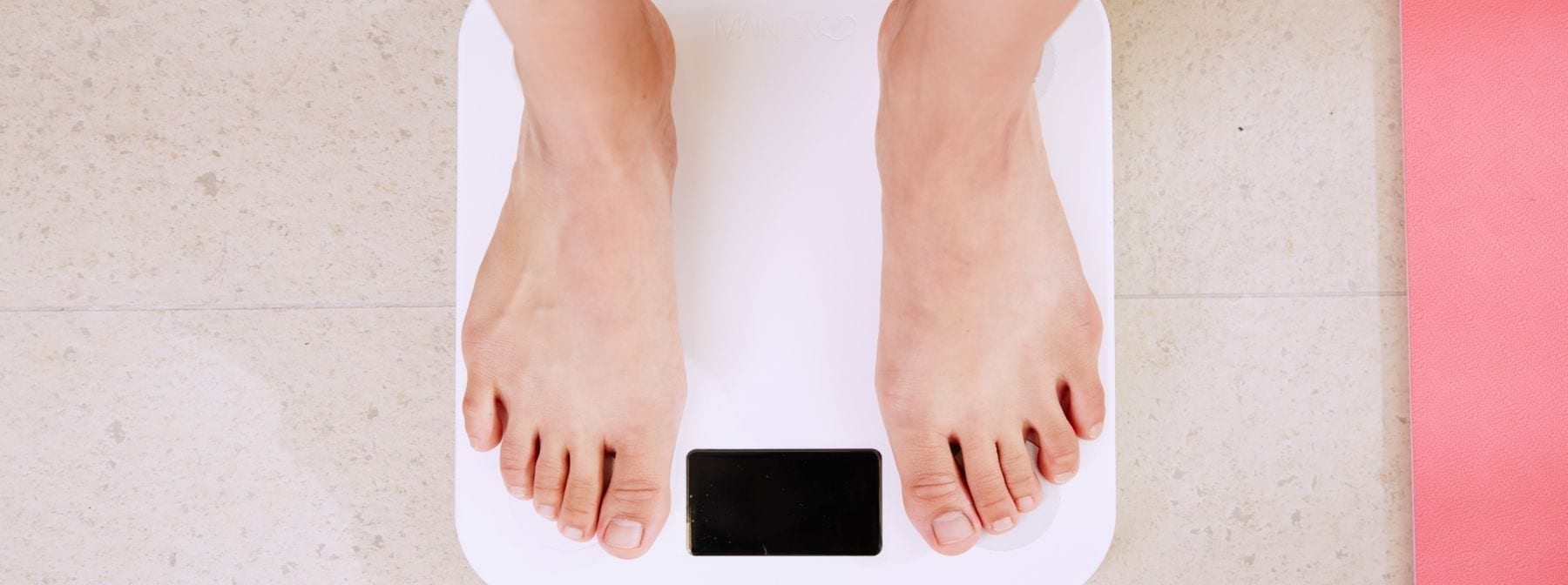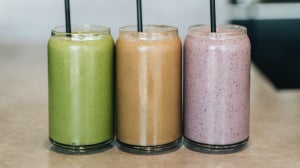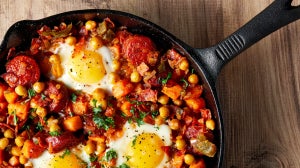
Fat loss is a simple equation, so if you’re looking for a miracle, then you won’t find it here. Instead, it’s all about burning more calories than you eat (causing a calorie deficit), to lose weight and fat. In contrast, if you consume more calories than you are able to burn through (calorie surplus), the pounds will soon start to mount up.
With this in mind, in order to burn through that unwanted body fat, you need to create a calorie deficit. Now, this can be done through either reducing your daily calorie intake, increasing daily calorie expenditure, or more commonly, a combination of the two. Although no supplement will directly create this required calorie deficit, these three supplements may be used as a small piece to your fat-loss jigsaw.
In this article, you'll find:

1. Protein
What are the benefits of protein for fat loss?
Dropping unwanted body fat unfortunately poses a threat to your hard-earned muscle tissue, which may sometimes have to be sacrificed. Thankfully, increasing your protein intake to around 2 grams per kg of body weight per day helps to maintain our hard-earned gains.1 So, a 75 kg man would require a daily protein intake of 150 grams, which can be easily achieved through a combination of food and supplemental protein where required.
Not only does protein protect our muscle tissue during periods of dieting but it can also affect our metabolism and appetite too. For instance, the body uses far more energy to digest, absorb and metabolise protein compared to when you eat carbohydrates, or fats, meaning that a high-protein meal or snack can also increase metabolism throughout the day and will help towards your daily goal of creating a calorie deficit.2
If protecting muscle and increasing metabolism isn’t enough to convince you, research also demonstrates that high-protein diets keep us feeling full following a meal, which may help us stay away from any high-calorie cravings that can be so damaging to any diet.3
What is the best protein dosage for fat loss?
We’ve already covered that daily protein intake should be around 2 grams per kg of body mass, which can be achieved through a combination of whole foods and supplemental protein. When supplementing with protein, we advise between 20-30 grams per serving as this appears to be enough to maximally stimulate the process of creating new proteins (known as protein synthesis).4
What are the side effects of protein?
Whilst we regularly hear that high-protein diets may affect our kidneys, a recent meta-analysis published in the Journal of Nutrition quashed this long-held belief demonstrating that high protein diets are safe in healthy individuals.5
2. Creatine
What are the benefits of creatine for fat loss?
Similar to caffeine, creatine is one of the most widely researched supplements on the planet and also boasts an impressive wealth of literature to support its performance benefits. Whilst creatine won’t directly help with fat loss, its performance enhancing properties may result in burning extra calories and increased muscle mass, helping to change your overall body composition and relative amount of fat.
Creatine works by increasing phosphocreatine stores within the muscle which help us to replenish energy during certain types of exercise. With this in mind, research shows that creatine supplementation can help change our body composition by increasing muscle mass, strength, and power.6 For those who regularly perform repeated sprint type training (e.g. high-intensity interval sprints) creatine will also help with energy production during these intervals and may allow you to push yourself harder.7
What is the best creatine dosage for fat loss?
For those wanting to see the benefits quickly, an initial loading phase of 4 x 5g doses per day (for 5-7 days) can be completed followed by daily maintenance doses of 3-5 g per day. Alternatively, lower doses of 3-5 g per day can be used although this will take approximately 3 weeks longer than the loading strategy.8
What are the side effects of creatine?
Prospective studies have demonstrated no adverse health side effects from long-term creatine use, although creatine loading will often result in a 1-1.5 kg gain in body mass.9,10 Rest assured, this small increase is due to increased water accumulation within the muscle cell itself and will not set your fat loss goals back.

3. Caffeine
What are the benefits of caffeine for fat loss?
Whilst caffeine doesn’t directly contribute to your fat loss goals, it’s one of the most extensively researched supplements for performance, where its performance enhancing properties may allow you to train harder for longer. Caffeine mainly works by affecting our central nervous system (CNS) and increases the concentration of key neurotransmitters that result in increased motivation and motor drive whilst also reducing feelings of fatigue and pain.11
For those interested in piling on muscle whilst shredding any unwanted body fat, a recent review summarised that caffeine ingestion before your workout could improve both strength and power, especially for upper body exercises.12 For those who prefer to take up cardio to achieve their fat loss goals, caffeine may help you to train at a higher intensity for longer – burning through extra calories in the process.11 Interestingly, caffeine also allows you to train hard, even when carbohydrate is restricted – something that’s common during periods of weight loss.13
What is the best caffeine dosage for fat loss?
The beneficial effects of caffeine for exercise performance can be seen after taking doses of anywhere between 2-6 mg per kg of body mass.14 Whilst this is a broad range, it’s important to initially experiment with a variety of different doses (starting from low doses of 2 mg per kg body mass) to see what works best for you. When it comes to timing, levels of caffeine within the blood will peak approximately 45-60 minutes after ingestion making this an ideal window to enhance your workout.15
What are the side effects of caffeine?
Large doses of caffeine (e.g. > 6 mg/kg of body mass) often result in negative side effects such as increased heart rate, irritability, confusion, tremor, and shortness of breath and should therefore be avoided.15 We advise starting at a low dose and monitoring your response before experimenting with higher doses. For those training in the evening, pre-workout caffeine is also likely to keep you tossing and turning and negatively impact your sleep and recovery.
Take home message
Whilst no supplements will override the need for a calorie deficit to achieve your fat loss goals, protein, creatine, and caffeine may provide the cherry on top of the cake. Together, these supplements can alter your metabolism, keep you feeling full, and enhance performance in the gym. When starting out with any of these supplements, we recommend experimenting with lower doses to minimise any side effects as each individual will respond differently to each supplement.
Our articles should be used for informational and educational purposes only and are not intended to be taken as medical advice. If you're concerned, consult a health professional before taking dietary supplements or introducing any major changes to your diet.
1. Mettler S, Mitchell N, Tipton KD. Increased Protein Intake Reduces Lean Body Mass Loss during Weight Loss in Athletes. Med Sci Sport Exerc, 326–337, 2010.
2. Acheson KJ, Blondel-lubrano A, Oguey-araymon S, Beaumont M, Emady-azar S, Nielsen-moennoz C, Bovetto L, Ammon-zufferey C, Monnard I. Protein choices targeting thermogenesis and metabolism. Am J Clin Nutr 93: 525–534, 2011.
3. Anderson GH, Moore SE. Dietary Proteins in the Regulation of Food Intake and Body Weight in Humans. J Nutr 134: 974–979, 2004.
4. Moore DR, Robinson MJ, Fry JL, Glover EI, Wilkinson SB, Priot T, Tarnopolsky MA, Phillips SM. Ingested protein dose response of muscle and albumin protein synthesis after resistance exercise in young men. Am. J. Clin. Nutr. 89: 161-168, 2009
5. Devries M, Sithamparapillai A, Brimble K, Banfield, L, Morton R, Phillips S. Changes in Kidney Function Do Not Differ between Healthy Adults Consuming Higher- Compared with Lower- or Normal-Protein Diets: A Systematic Review and Meta-Analysis. The Journal Of Nutrition, 148(11), 1760-1775, 2018
6. Branch JD. Effect of creatine supplementation on body composition and performance: a meta-analysis. Int. J. Sports. Nutr. Exer. Metab. 13: 198-226, 2003
7. Casey A, Costantin-Teodosiu D, Howell S, Hultman E, Greenhaff PL. Creatine ingestion favorably affects performance and muscle metabolism during maximal exercise in humans. Am. J. Physiol, 271: E31-E37, 1996
8. Hultman E, Soderlund K, Timmons JA, Cederblad G, Greenhaff PL. Muscle creatine loading in men. J. Appl. Physiol. 81: 232-237, 1996
9. Poortmans JR, Francaux M. Long-term oral creatine supplementation does not impair renal function in healthy adults. Med. Sci. Sports. Exer 31: 1108-1110, 1999
10. Mihic S, MacDonald JR, McKenzie S, Tarnopolsky MA. Acute creatine loading increases fat free mass but does not affect blood pressure, plasma creatinine or CK activity in men and women. Med. Sci. Sports. Exer 32: 291-296, 2000
11. Goldstein E, Ziegenfuss T, Kalman D, Kreider R, Campbell B, Wilborn C. International society of sports nutrition position stand: caffeine and performance. Journal Of The International Society Of Sports Nutrition, 7(1), 5, 2010
12. Grgic J, Trexler E, Lazinica B, Pedisic Z. Effects of caffeine intake on muscle strength and power: a systematic review and meta-analysis. Journal Of The International Society Of Sports Nutrition, 15(1), 2018
13. Lane S, Areta J, Bird S, Coffey V, Burke L, Desbrow B, Karagounis LG, Hawley JA. Caffeine Ingestion and Cycling Power Output in a Low or Normal Muscle Glycogen State. Medicine & Science In Sports & Exercise, 45(8), 1577-1584, 2013
14. Burke, L, Desbrow B, Spriet L. Caffeine and Sports Performance. Human Kinetics: Champaign, IL, 2013
15. Graham TE, Spriet LL. Metabolic, catecholamine and exercise performance responses to various doses of caffeine. J. Appl. Physiol. 78: 867-874, 1995

Mark is a current PhD researcher at the Research Institute for Sport & Exercise Science (Liverpool John Moores University) where his research focuses on the role of nutrition in skeletal muscle adaptation to training.
Mark also holds a Bachelor’s of Science in Sport & Exercise Science and a Master’s in Sport Nutrition and has published work in a range of scientific journals, professional magazines and has presented at both national and international conferences.
Alongside his research profile, Mark also practices as a performance nutritionist within professional football.Find out more about Mark’s experience here.








